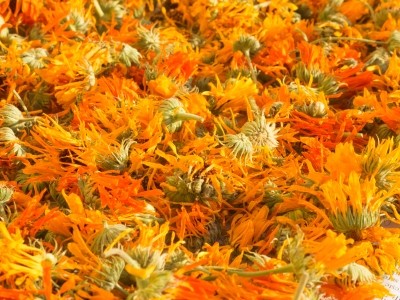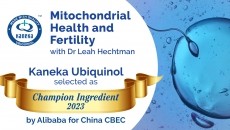Scientists explain luteins anti-inflammatory role
how lutein acts against inflammation, research that deepens
understanding of the nutrient's benefits.
Lutein, a nutrient found in various foods including green leafy vegetables and egg yolk, has a ten-year history in the dietary supplement market as a nutrient to reduce the risk of age related macular degeneration (ADM). With eye health as its main spot, the lutein market is currently estimated to be worth in the region of US$100m and $130m. While a number of studies of studies have reported anti-inflammatory effects for the nutrient, the actual mechanism behind the apparent effects has not been elucidated. Chronic inflammation, brought about by an over-expression or lack of control of the normal protective mechanism, can lead to a range of inflammatory related disease, particularly cardiovascular disease, the leading cause of death in Europe. New research from Mohamed Rafi and Yassaman Shafaie from the State University of New Jersey looked at the effects of lutein using the lipopolysaccharide (LPS)-stimulated mouse macrophage cell line (RAW 264.7) LPS stimulates the production of nitric oxide (NO), over-expression of NO has been reported to have detrimental effects in the host. Writing in the journal Molecular Nutrition & Food Research, Rafi and Shafaie report that addition of lutein reduced NO production by 50 per cent, compared to the LPS-alone sample. Further study, looking at the expression of inducible NO synthase, the enzyme that produces NO, and found a 1.9-fold reduction in expression of this enzyme at the mRNA level, and a 72.5 per cent reduction in expression of this enzyme at the protein level. "The results of this study suggest the anti-inflammatory properties of lutein demonstrated by the decrease in the expression of iNOS at the mRNA and protein levels in RAW 264.7 mouse macrophage cells," they concluded. Public awareness of lutein has never been higher in Europe, with a recent survey, from Frost and Sullivan and commissioned by Kemin, finding that awareness has doubled compared to last year, to 25.8 per cent and 16 per cent in Italy and France, respectively. Germans showed the greatest awareness, of 33.3 per cent. The UK was the only country where it seemed to have slipped slightly, to 20 per cent (compared to 25.8 in 2005). Source: Molecular Nutrition & Food Research Volume 51, Issue 3, Pages 333-340 "Dietary lutein modulates inducible nitric oxide synthase (iNOS) gene and protein expression in mouse macrophage cells (RAW 264.7)" Authors: M. Rafi and Y. Shafaie













